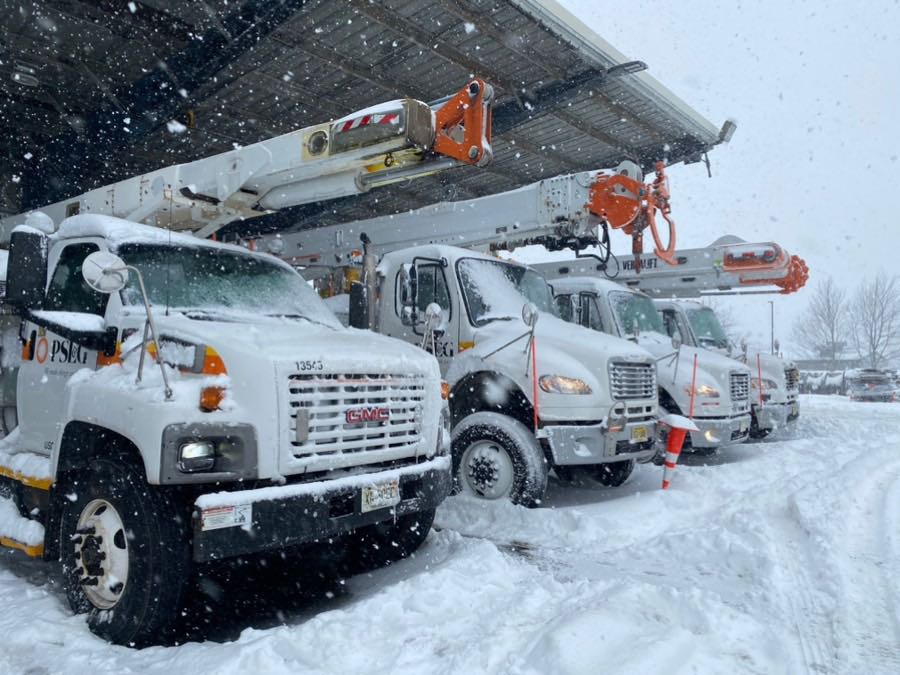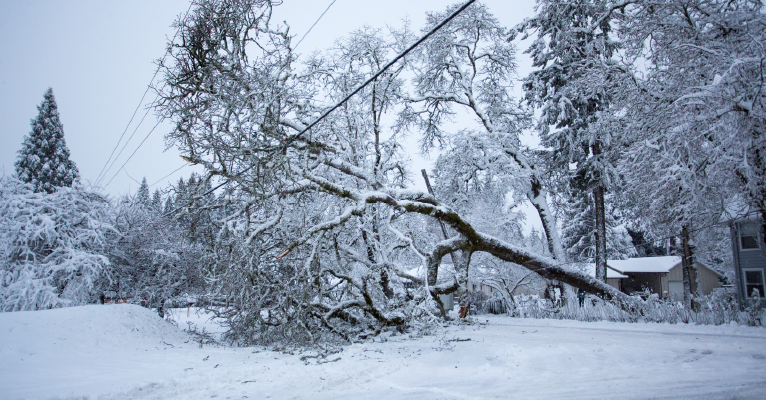PSE&G said it’s prepared for the snow and the extreme cold temperature forecasted over next several days across its territory.
“We are ready to respond to all potential power outages and handle increased requests to repair heating systems for our customers,” PSE&G said in a statement.

The weather forecast is for snow across entire service territory and temperatures will be several degrees below average for the next few days, with 10 to 15 mph winds expected across the service territory with isolated gusts of 30 mph.
“We encourage customers to take the time to prepare — including checking your HVAC and its air filter (if equipped), knowing how to report an outage before it happens and how to stay safe and connected to PSE&G during extreme weather,” PSE&G said.
PSE&G is Prepared
In advance of the cold weather, PSE&G crews performed system and logistics checks to ensure the availability of critical materials, fuel and other supplies to fulfill our commitment to bring customers safe and reliable service regardless of extreme weather conditions. We also have additional crews scheduled to be able to support the more than 5,500 no heat calls today through Friday.
“Customer safety is a top priority and we’re monitoring the weather system closely, particularly in southern areas where we expect more snow,” said John Latka, senior vice president, Electric Operations, Transmission & Distribution. “We are ready for restoration once weather conditions permit our crews work safely. Our crews will work 24×7 to restore all of our customers’ utility service, should they experience an outage, safely and as quickly as possible.”
“Extreme cold can make your HVAC work harder. If you haven’t changed your HVAC air filter recently, it’s likely time to do so as you don’t want to be in this cold with a poorly operating or failed unit,” said Brian Clark, vice president, Gas Operations. “When we respond to customers calling for help to repair their heating systems, we aim to do so within 24 hours.”
Customers can help PSE&G and others stay safe by keeping pathways to homes and businesses clear of snow and understand that we may be traveling through ice/snow to get to you. Also be aware that frigid temperatures can keep heating units from optimal performance, making homes/businesses feel colder than usual.
Stay Connected
People are advised to know how to report a power outage. These tools help customers and PSE&G stay connected during an outage by sharing valuable information and status updates.
- If you’re a PSE&G customer and need HVAC repair, schedule an appointment via pseg.com or call 1-800-350-PSEG (7734).
- Report an outage and receive status updates by texting OUT to 4PSEG (47734), through our app or on our website at pseg.com/myaccount, or call PSE&G at 1-800-436-PSEG (7734).
- Visit PSE&G’s Outage Map for the latest in outage info, restoration times and crew locations across New Jersey at pseg.com/outagecenter.
Prepare Yourself and Your Home
All customers can take steps to improve safety in their homes, including the following:
- If you smell a gas odor, immediately exit the building, move at least 350 feet away and call PSE&G at 1-800-880-PSEG (7734) OR Call 911.
- Since gas appliances tend to be used more in winter, it’s particularly important to monitor carbon monoxide levels in your home. Watch these Facts from the Field video tips on getting a carbon monoxide detector and the best way to use your detector. Also, to prevent carbon monoxide poisoning, do not run any gasoline-powered generators in a garage or any other enclosed space.
- When it snows, keep any high-efficiency furnace pipes on the outside of your home clear of snow – otherwise, you may inadvertently allow carbon monoxide to build up in your home. Also clear chimneys and vents for other gas appliances.
- Accumulation of ice or snow can interfere with the proper operation of your gas metering system. The meter assembly may contain a regulator that is designed to safely release pressurized gas in the event of a malfunction. Blocking the regulator vent could create an unsafe condition where gas is not able to escape from internal piping.
- Snow and ice can damage gas meters and piping. Be careful when removing snow from around the gas meter; any damage to the gas meter could potentially create a possible leak hazard.
- Use a broom to keep the gas meter, pressure regulator, and vent piping clear of snow and ice during the winter season.
Additional tips include:
- Chimneys and vents should be protected using an approved cap or screen to keep small animals or insects from entering. These pests have been known to build nests inside chimneys or vents and can cause potentially hazardous conditions.
- Inspect and clean dryer vents to ensure they are clear of debris, lint and condensation, which can become a fire hazard especially in the winter when drying heavier clothing and bedding.
- If you’re installing new gas appliances, change the connectors as well to prevent leaks and use safer, more modern materials.
- When cooking or baking, never block the vents in the bottom of your oven by lining them with foil or oven protectors as blocked vents can cause carbon monoxide accumulation. There are also signs that your oven needs servicing.
- If you have an old water heater, consider replacing it. You can also place a water sensor near your heating device.
- Whether it’s melting snow or fast rainstorms that lead to flooding, it’s important to familiarize yourself with flood safety, including how to recognize an overheated or “runaway” boiler.
- Do not store propane tanks or any other highly flammable gas/liquid in your home, as they can become extremely hazardous in the event of a fire.
- Downed wires should always be considered “live.” Stay at least 30 feet away from downed lines, and don’t go near the pole or anything touching the line. Immediately contact PSE&G, at 1-800-436-PSEG (7734) via mobile app or our website, to report downed wires and dial 911 if an immediate hazard exists.
- Electric current passes easily through water, so stay away from downed power lines and electrical wires. Don’t drive over – and don’t stand near – downed power lines.
- Downed wires can potentially be hidden in standing water and snow. If you encounter large pools of standing water, stop, back up and choose another path.
- If you are on life-sustaining medical equipment, ensure that you alert PSE&G in advance and notify your local police and fire departments. For more information, visit www.pseg.com/life.











